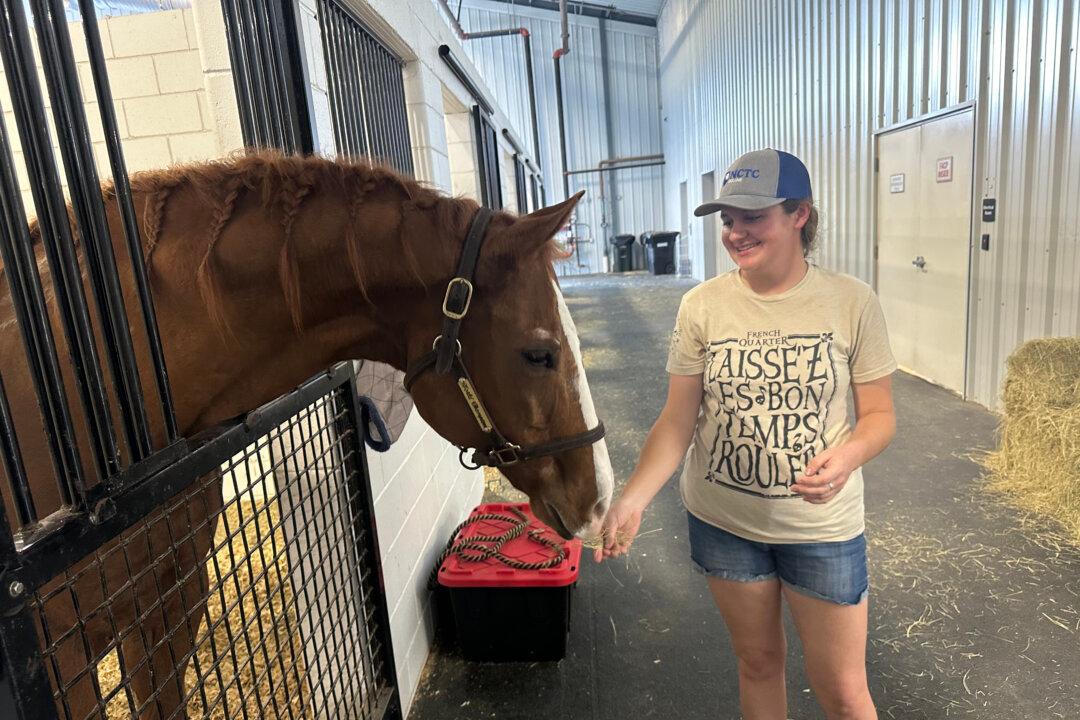OCALA, Fla.—As Hurricane Helene churned toward Florida’s Gulf Coast, Maggie Nelson wasn’t worried about her own safety in the storm.
The 22-year-old Texas transplant fretted, instead, about her two horses.

OCALA, Fla.—As Hurricane Helene churned toward Florida’s Gulf Coast, Maggie Nelson wasn’t worried about her own safety in the storm.
The 22-year-old Texas transplant fretted, instead, about her two horses.